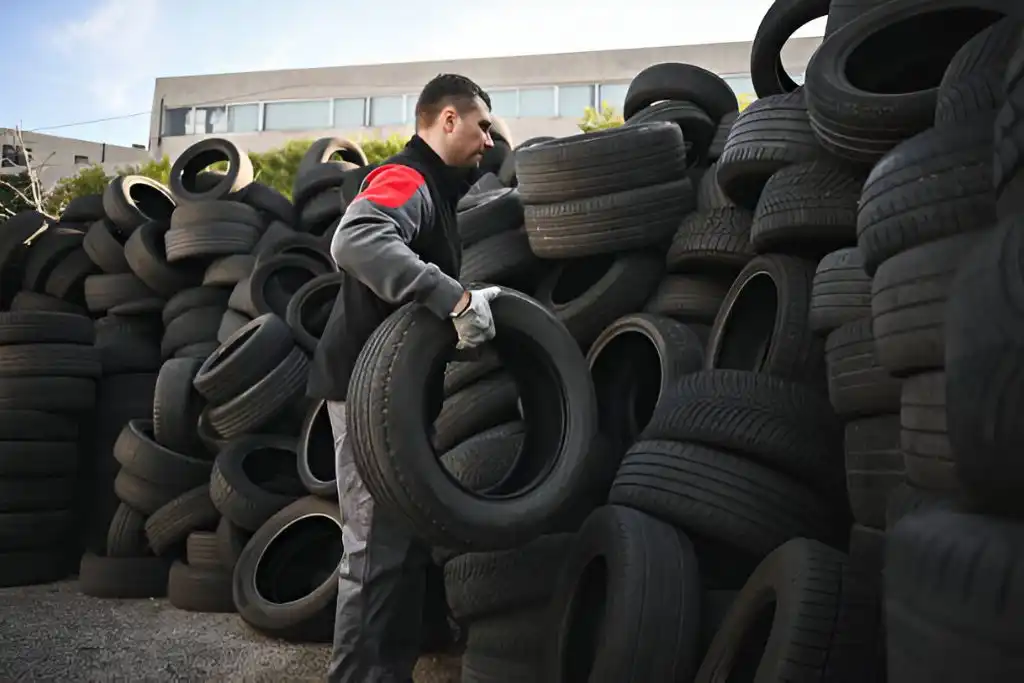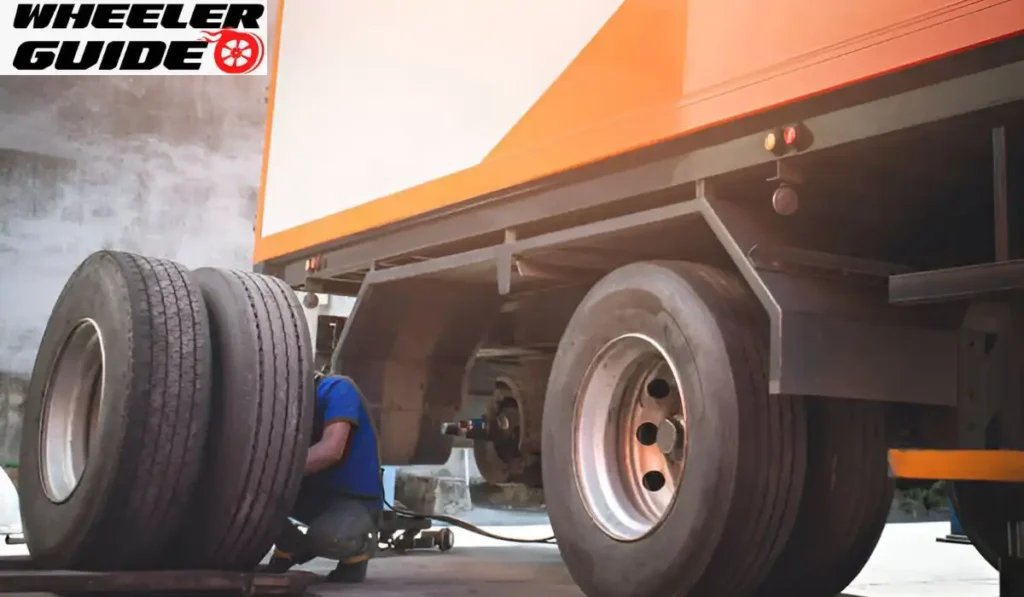Semi truck tires are a big expense for trucking companies and owner-operators. These large tires cost between $300 to $1000 each, depending on the brand, size, and type. A full set of 18 tires for a semi-truck can run anywhere from $5,400 to $18,000.
The price of semi truck tires varies based on several factors. Tire position matters, with steer tires typically being the most expensive. The brand also affects cost, with premium names like Michelin and Bridgestone often commanding higher prices. Tire size and load capacity also play a role in determining the final price.
Types and Functions of Semi Truck Tires
Semi trucks use different tire types for specific purposes. Each type plays a key role in the truck’s performance and safety on the road.
Steer Tires: The Frontline of Traction and Stability
Steer tires are crucial for handling a semi-truck. They sit at the front and guide the vehicle. These tires need good traction and a deep tread depth to grip the road well.
Steer tires often have ribbed patterns. This design helps them cut through water and maintain control. They also need to be tough. The constant turning puts a lot of stress on them.
Quality steer tires can last up to 150,000 miles with proper care. Regular checks of tread depth are vital for safety.

Drive Tires: Ensuring Powerful Transmission of Forces
Drive tires power the truck forward. They sit under the trailer and bear much of the weight. These tires need deep treads for good traction in all weather.
The tread pattern on drive tires is often blocky or lug-style. This helps them grip the road and push the truck along. Drive tires work hard and can wear down faster than other types.
Truckers should check drive tire tread depth often. When it gets low, the tires can’t do their job well. This can lead to slipping and poor fuel economy.
Trailer Tires: Supporting Loads and Maintaining Direction
Trailer tires carry the bulk of the cargo weight. They need to be tough and reliable. These tires don’t steer or drive, but they’re vital for stability.
Trailer tires often have ribbed patterns like steer tires. This helps them roll smoothly and wear evenly. They need to handle heavy loads without overheating.
Good trailer tires can improve fuel economy. They should have the right tread depth to prevent drag. Proper inflation is key to their performance and lifespan.
Purchasing and Maintenance of Semi Tires
Buying and taking care of semi tires is key for truck drivers and fleet owners. The right tires can save money and keep trucks safe on the road. There are many factors to think about when getting new tires.
Understanding Tire Size and Speed Rating
Semi truck tires come in different sizes and speed ratings. The size affects how much weight the tire can carry. Speed ratings tell the top speed a tire can handle safely.
Tire size is shown by numbers like 295/75R22.5. The first number is the tire width in millimeters. The second is the height as a percent of the width. R means radial, and the last number is the rim size in inches.
Speed ratings go from L (75 mph) to N (87 mph) for most semi tires. Picking the right rating is crucial for safety and follows laws.

Maximizing Tire Life: Retreads and Fuel Efficiency
Retreaded tires can save money and help the planet. They cost less than new tires but still work well. Many big fleets use retreads to cut costs.
Fuel-efficient tires can also save money. They have less rolling resistance, which means trucks use less fuel. This adds up to big savings over time.
To make tires last longer:
- Check air pressure often
- Rotate tires regularly
- Keep wheels aligned
- Fix small issues fast
These steps can make tires last much longer and save money in the long run.

Services and Financing: Ensuring Quality and Affordability
Good tire service is key for keeping trucks on the road. Many tire shops offer 24/7 help for emergencies. They can fix flats, replace tires, and do other services.
Quality tires from top brands may cost more up front but can save money over time. They often last longer and perform better.
Some tire shops offer financing to help spread out the cost of new tires. This can make it easier to get good tires without a big upfront cost.
When picking a tire service, look for:
- Good customer reviews
- Fair prices
- Quick response times
- Wide selection of tires
A good tire service can help keep trucks running safely and save money in the long term.
Frequently Asked Questions
What factors affect the pricing of semi tires?
Brand reputation and tire quality play big roles in semi tire pricing. Tire size and type also impact costs. Premium brands often charge more but may offer better durability. Material quality and tread design affect price too.
Where can one find affordable semi truck tires?
Truck stops and tire dealerships often stock semi tires. Online retailers can offer competitive prices. Some fleet services provide discounts for bulk purchases. Retreaded tires are a more budget-friendly option for some positions on the truck.
What is the lifespan of semi tires and how does this impact cost?
Semi truck tires typically last 3 to 6 years. Longer-lasting tires may cost more upfront but save money over time. Proper maintenance and rotation can extend tire life, reducing long-term expenses.
How does tire size and type influence the price for semi trucks?
Larger tires generally cost more than smaller ones. Specialized tires like all-position or drive tires may have higher prices. Wide-base single tires often cost more than dual tire setups but can offer fuel savings.
Can you provide an estimate for the cost to replace a full set of semi tires?
A full set of semi truck tires can cost between $3,000 to $7,200. This estimate assumes 10 to 12 tires at $300 to $600 each. Actual costs vary based on tire quality, size, and market prices.
What are the price considerations for steer tires on a semi truck?
Steer tires often cost more than other positions due to their critical role in vehicle control. They need to be replaced more frequently, impacting overall tire expenses. High-quality steer tires may offer better handling and longer tread life, justifying their higher price.


